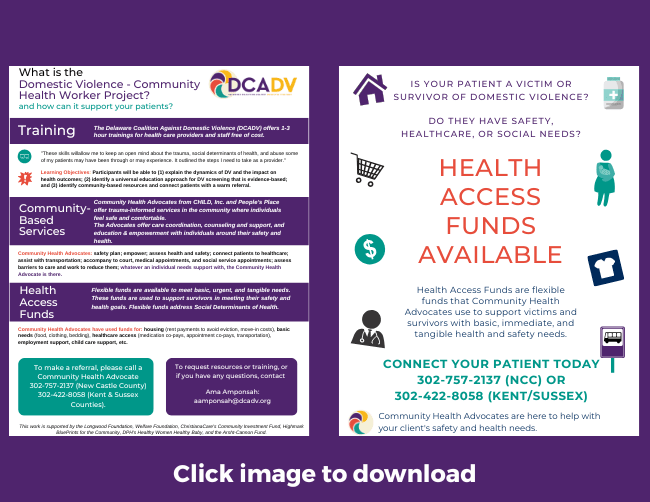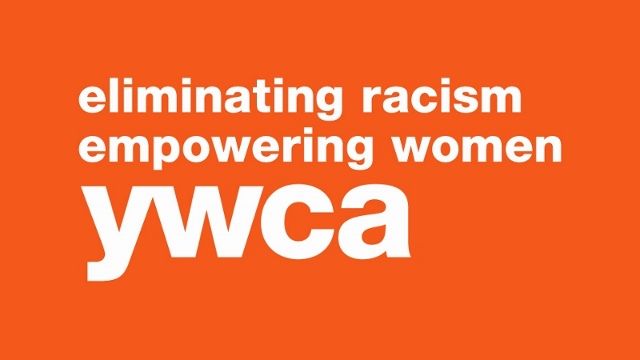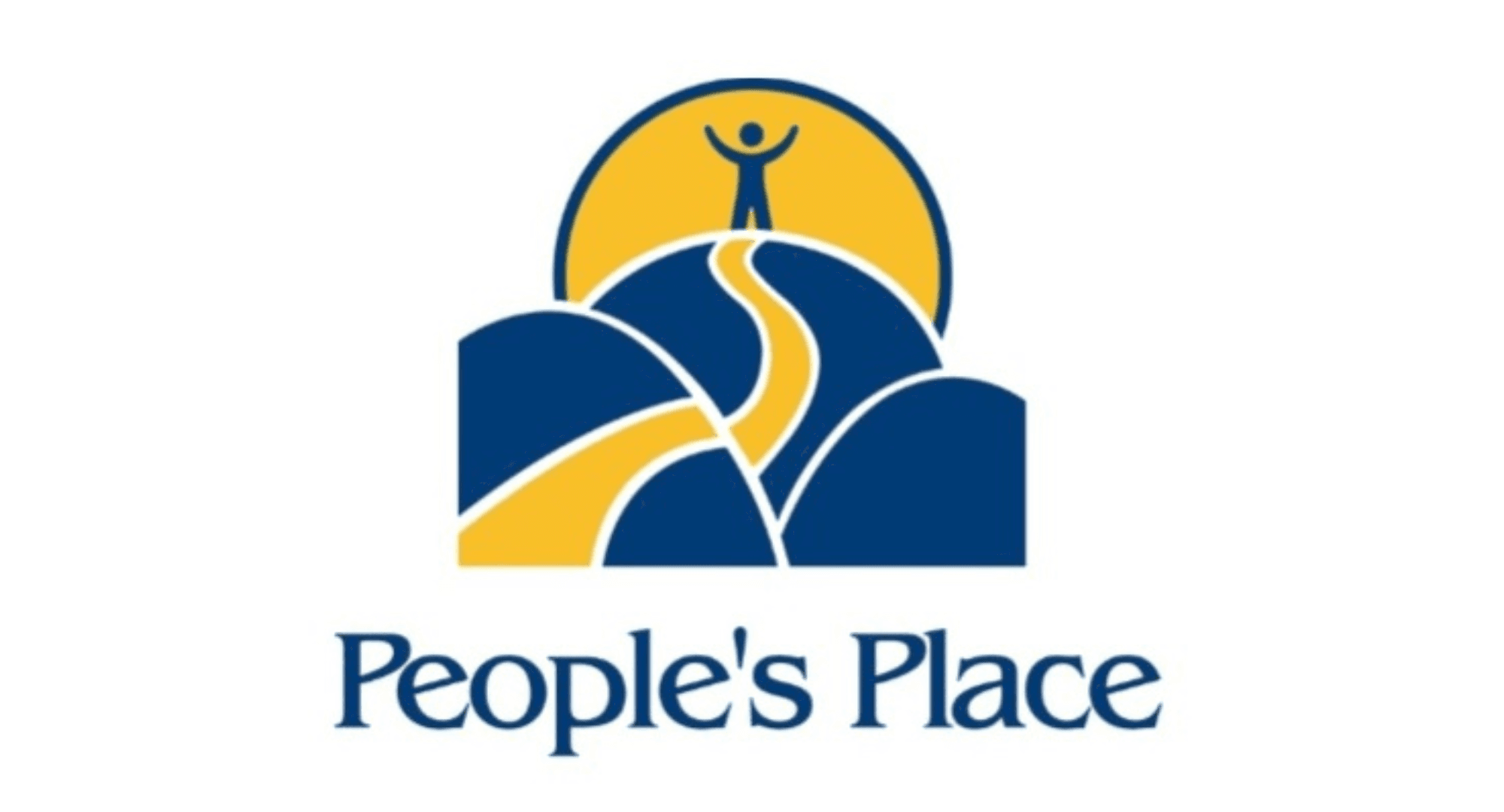Community Health Worker Collaborative Project
The Domestic Violence – Community Health Worker Project (DV-CHW Project) is a collaborative effort among the Delaware Coalition Against Domestic Violence (DCADV), CHILD, Inc., People's Place, ChristianaCare, Westside Family Healthcare, and St. Francis Hospital. DCADV serves as the project lead, guiding this public health response to domestic violence. The DV-CHW project provides life-saving services and care coordination to victims of domestic violence and crucial training and resources to health care providers.
In order to strengthen the healthcare response to domestic violence, DCADV provides regular trainings to healthcare teams. These trainings have evolved since the project began and include an introductory offering focusing on the basics of recognizing and responding to domestic violence, and many practice area-specific opportunities, like domestic violence and mental/behavioral health, substance use, maternal and infant health, teens and children, and the LGBTQ+ community. Through the DV-CHW Project, DCADV is able to tailor trainings to healthcare teams’ needs and schedules, making them accessible and applicable. All of the trainings focus on an evidence-based, trauma-informed screening and education approach.
In addition to the trainings, the DV-CHW Project creates and offers localized resource materials to health care teams. These resources include patient-facing materials, like resource cards, posters, and educational materials and provider-facing materials, like a wallet-sized DV screening tips card, key tags for lanyards with referral numbers, and screening cards. Through these trainings and resource materials, all listing the DV-CHW referral numbers, the project is able to strengthen the referral pathway between healthcare teams and the DV-CHWs.
Health providers and community partners are able to make referrals to the DV-CHWs with ease. All it takes is one phone call. From the point of referral, a DV-CHW meets face-to-face with the victim to address safety, health, and social needs. These meetings occur onsite at the health provider or community partner’s location or at a safe place in the community. The DV-CHW provides information on available resources, helps with safety planning, and assists with emergency needs. Ensuring this service is accessible to Hispanic victims, half the DV-CHW team is bilingual in Spanish and English, breaking down barriers for Hispanic victims.
This unique service delivery model is led by specially trained Domestic Violence – Community Health Workers (DV-CHWs) employed by CHILD, Inc. (New Castle County) and People's Place (Kent and Sussex Counties). These DV-CHWs are dually trained as DV advocates and community health workers. The use of specially trained DV-CHWs addresses gaps in service delivery and improves access and engagement of health and safety services, especially within minority and uninsured/underinsured communities. The DV-CHW is a resource for the healthcare team and the community service program, creating easily accessible advocacy. The service is survivor-centered and tailored to the goals and needs of the survivor.
DV-CHWs meet with victims in safe spaces throughout their community, places that a victim can visit safely without raising the violent suspicion of the abuser. For some this is their home, for others, it may be the library, grocery store, coffee shop, laundromat, or nearby park. DV-CHWs complete a health and social needs screening, ensure the victim is connected to healthcare services, engage in safety planning that includes both immediate protections and a long-term plan, and assist with addressing barriers to health and safety. Through regular communication and a trauma-informed approach, the DV-CHWs build supportive connections focused on long-term safety and health.
Critical to the positive impact of the DV-CHW service delivery model is the utilization of flex funds – flexible financial assistance the DV-CHWs use to support survivors’ safety, health, and social needs. Flex funds are most often spent to support housing, basic needs, children’s needs, utility payments, and essential furnishings. These funds have been found to reduce financial stress and increase hope for the future and are a best practice for improving housing stability for survivors of DV.
As part of the overall evaluation plan for the DV-CHW project, the Center for the Study & Prevention of Gender-Based Violence at the University of Delaware completed a formal evaluation in April 2021, comprised of quantitative and qualitative data. The report of this evaluation includes participant characteristics, the nature of services provided, key impacts, and next steps. If you’re interested in receiving a copy of this report, please contact Ama Amponsah at aamponsah@dcadv.org.





